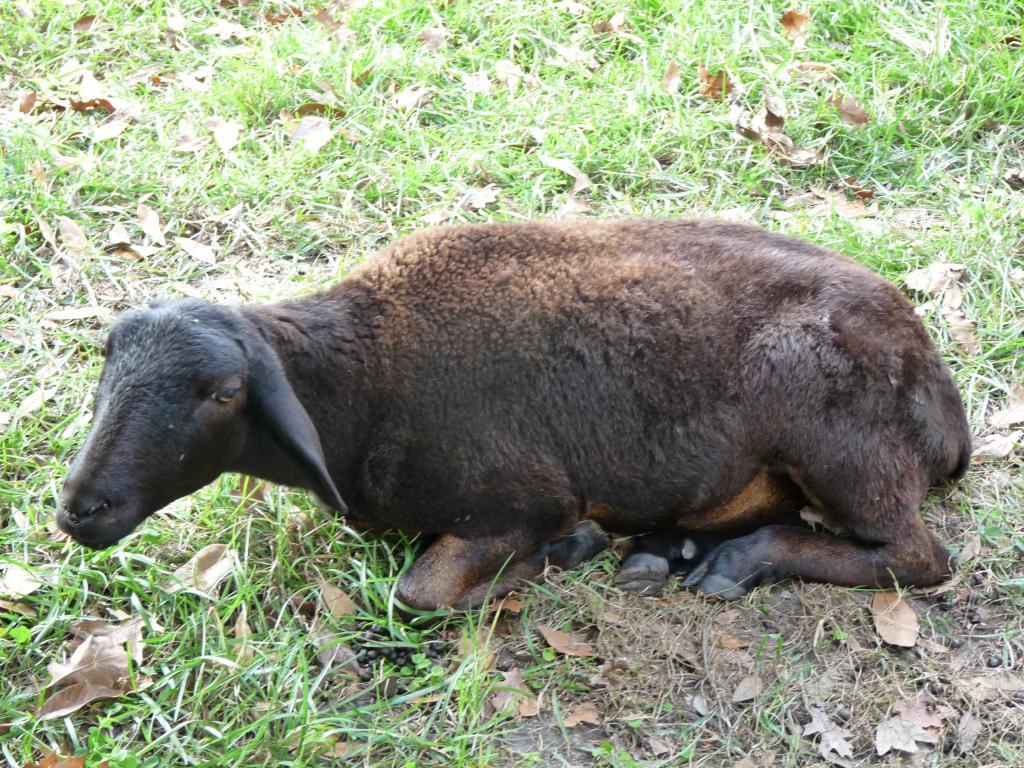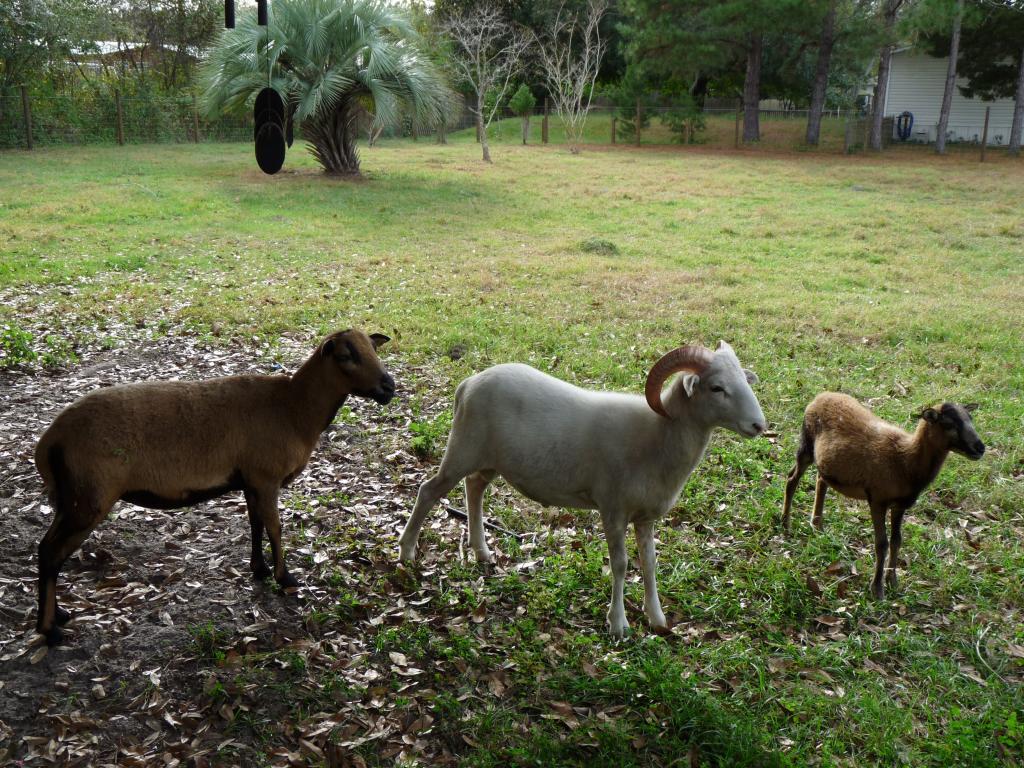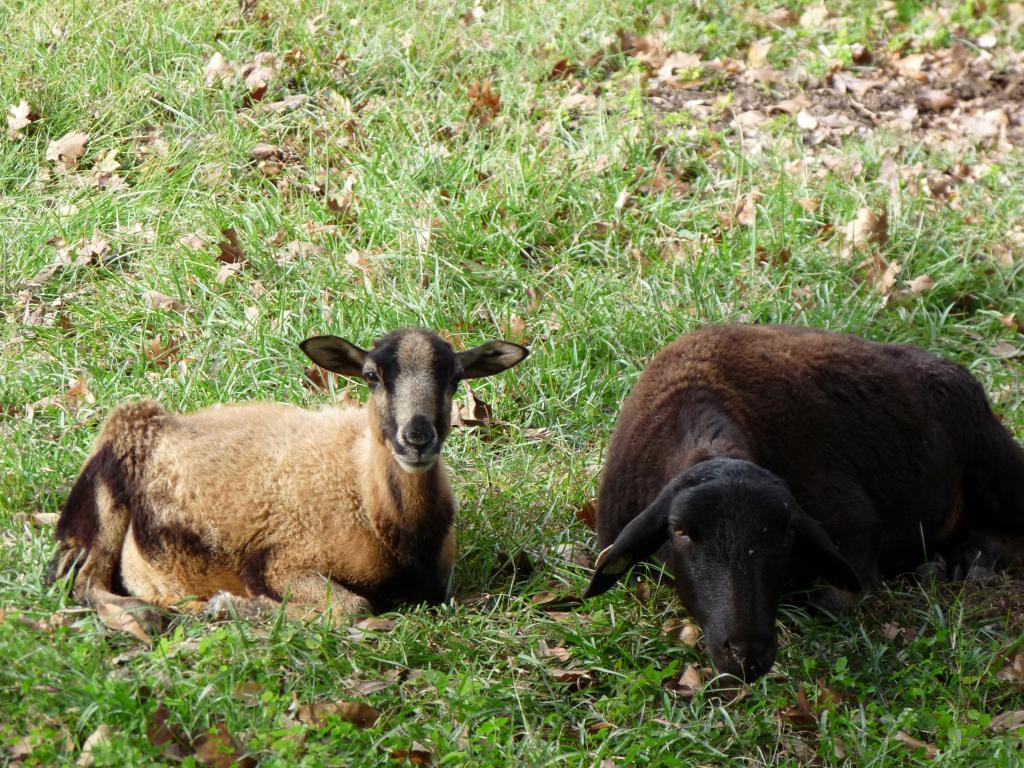- Aug 8, 2011
- 1,981
- 40
- 141
there are a couple things on your list I've never used.
b vitamins are short-acting, you'll need to give a shot once or twice a day. I don't know of any b vitamin that is long acting, but then, I'm not a vet.

what the b vitamins do is stimulate their appetite, and that needs to be done repeatedly until she's interested in eating without help.
banamine is good for 12 hours more or less. did the vet give you additional shots for later?
Excede is a long-acting antibiotic, I usually give one shot, and if more is needed another shot 3-4 days later (I'd have to check my medicine chart, but that's what's on the top of my head about it)
quest is a wormer, hopefully he selected that one because it's working locally
I don't have any experience with the other two. we've used steroids in sheep only once, and in horses only a couple of times. vitmix I don't know anything about.
presuming this is a worm anemia issue (white inner eyes) you have to keep her from crashing while the wormer does it's job and then she builds up a proper red blood cell count... that takes weeks. in the mean time she's got to stay hydrated and begin to eat or she can't possibly recover. that's what the banamine and b vitamins helps with. that, and you've got to figure out what's temping enough to get her to try.
I don't recall, do you have other sheep or goats? if you do, they've got worms too and need to be checked (eyelids or fecals) and treated if the worm load is high. there are always some individuals in a group that are more likely to get high worm loads (less resistant for a variety of reasons) so that one will become seriously ill first, but if one has worms, they all do. the best practice is to do fecals regularly, or learn how to do an accurate evaluation using the eyelid (which won't catch all kinds of worms) and then treat those that need it. you want to make sure you treat the affected ones as soon as you know that this is a worm issue. also, if you've got other livestock they may need to be treated as well. some worms are host-specific, some are not, so depending on what the fecal finds, there might need to be a general round of deworming.
there are some things you can do regarding pasture and manure management that help with reducing reinfestation, if you're interested, let's chat after this crisis is past. current thinking on worm management and reducing resistance to drugs (or at least decreasing the pace at wich they become resistant) is only to worm the individuals that need it, only when they need it. then doing a second fecal after treating to make sure your wormer of choice is actually working. if it's not working well enough, it's time to switch drugs. only way to know is a post-treatment fecal.
anyway, call your vet back about the Bvits and additional banamine shots if you need it... and if Dr. Sara is more knowlegable, and you have a relationship already established, call and tell what's already been done, ask my questions, ask if more needs to be done. I don't hesitate to go for a second opinion the moment I know the vet I've got isn't working well for me. I haven't had to do that often, but it's better to get that second opinion than not have the animal get what she needs to recover.
b vitamins are short-acting, you'll need to give a shot once or twice a day. I don't know of any b vitamin that is long acting, but then, I'm not a vet.

what the b vitamins do is stimulate their appetite, and that needs to be done repeatedly until she's interested in eating without help.
banamine is good for 12 hours more or less. did the vet give you additional shots for later?
Excede is a long-acting antibiotic, I usually give one shot, and if more is needed another shot 3-4 days later (I'd have to check my medicine chart, but that's what's on the top of my head about it)
quest is a wormer, hopefully he selected that one because it's working locally
I don't have any experience with the other two. we've used steroids in sheep only once, and in horses only a couple of times. vitmix I don't know anything about.
presuming this is a worm anemia issue (white inner eyes) you have to keep her from crashing while the wormer does it's job and then she builds up a proper red blood cell count... that takes weeks. in the mean time she's got to stay hydrated and begin to eat or she can't possibly recover. that's what the banamine and b vitamins helps with. that, and you've got to figure out what's temping enough to get her to try.
I don't recall, do you have other sheep or goats? if you do, they've got worms too and need to be checked (eyelids or fecals) and treated if the worm load is high. there are always some individuals in a group that are more likely to get high worm loads (less resistant for a variety of reasons) so that one will become seriously ill first, but if one has worms, they all do. the best practice is to do fecals regularly, or learn how to do an accurate evaluation using the eyelid (which won't catch all kinds of worms) and then treat those that need it. you want to make sure you treat the affected ones as soon as you know that this is a worm issue. also, if you've got other livestock they may need to be treated as well. some worms are host-specific, some are not, so depending on what the fecal finds, there might need to be a general round of deworming.
there are some things you can do regarding pasture and manure management that help with reducing reinfestation, if you're interested, let's chat after this crisis is past. current thinking on worm management and reducing resistance to drugs (or at least decreasing the pace at wich they become resistant) is only to worm the individuals that need it, only when they need it. then doing a second fecal after treating to make sure your wormer of choice is actually working. if it's not working well enough, it's time to switch drugs. only way to know is a post-treatment fecal.
anyway, call your vet back about the Bvits and additional banamine shots if you need it... and if Dr. Sara is more knowlegable, and you have a relationship already established, call and tell what's already been done, ask my questions, ask if more needs to be done. I don't hesitate to go for a second opinion the moment I know the vet I've got isn't working well for me. I haven't had to do that often, but it's better to get that second opinion than not have the animal get what she needs to recover.







